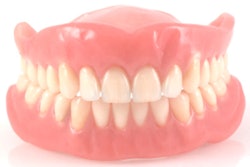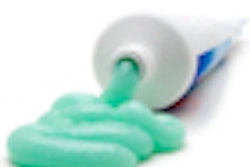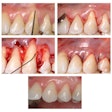Good oral hygiene practices are associated with a lower risk of developing dementia, according to a study in the Journal of the American Geriatrics Society (August 2012, Vol. 60:8, pp. 1556-1563).
Researchers from the University of Southern California; the University of California, Los Angeles; and the University of California, Irvine evaluated 5,468 elderly adults (median age 81) from 1992 to 2010 who lived in a Southern California retirement community for the study.
Those who brushed their teeth less than once a day were up to 65% more likely to develop dementia than those who brushed three times daily, the researchers found.
The study participants were free of dementia at the outset and answered questions about their dental health habits, the condition of their teeth, and whether they wore dentures, according to a Reuters Health story.
When the researchers followed up 18 years later, they used interviews, medical records, and, in some cases, death certificates to determine that 1,145 of the original group had been diagnosed with dementia.
Of 78 women who said they brushed their teeth less than once a day in 1992, 21 had dementia by 2010 -- about one case per 3.7 women. In comparison, among those who brushed their teeth at least once a day, closer to 1 in every 4.5 women developed dementia. That translates to a 65% greater likelihood of dementia among those who brushed less than daily, according to Reuters.
Among the men, about 1 in 6 irregular brushers developed the disease, making them 22% more likely to have dementia than those who did brush daily. Statistically, however, the effect was so small it could have been due to chance, the researchers said.
Those who had lost the ability to chew properly and did not wear dentures had a 91% greater risk of dementia than those who could masticate properly, the researchers found.



















